Dental Health in Young Children Can Aid Speech Development
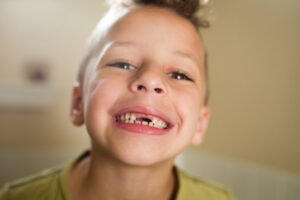
The connection between speech development and dental health in young children is profound. The two intertwine intricately to shape a child’s communication abilities and overall well-being. Pediatric dentists like Adams and Seaton, play an important role in providing support for speech development. And speech therapists can identify speech patterns that can be harmful to dental health.
How Dental Health in Young Children and their Speech Development Are Connected
Dental health plays a crucial role in speech development. Proper oral structures, including teeth, tongue, lips, and palate, are essential for articulating sounds and forming words.
Teeth provide support for the tongue and lips, allowing for precise movements and airflow required in speech production. Misaligned teeth or jaws can lead to speech impediments such as lisps, difficulty pronouncing certain sounds, or even stuttering.
The Importance of Pediatric Dental Check-ups
Regular dental check-ups can help identify and correct underlying issues that could cause speech problems. That’s why we at Adams and Seaton Pediatric Dentistry recommend preventive dental check-ups for children every 6 months. Children with untreated dental issues like missing teeth or crowded teeth may struggle with enunciating words clearly, affecting their ability to communicate effectively.
The pain of tooth decay or oral infections may hinder a child’s willingness to speak, affecting a child’s confidence in social interactions, potentially impacting their speech development.
The Importance of Speech Therapy
Although this point may not be obvious, speech development can influence dental health. The way children use their mouths and articulate sounds during speech production can affect oral hygiene habits and dental outcomes. For instance, improper tongue placement or swallowing patterns may contribute to dental malformations over time.
Additionally, certain speech habits or behaviors, such as tongue thrusting or mouth breathing, can exert pressure on teeth and jaws, leading to orthodontic issues like open bites or overbites. Addressing speech-related oral habits early on through speech therapy or orthodontic intervention can help prevent or mitigate potential dental problems.
Dental Emergencies for Kids: What Parents Need to Know
Parents strive to keep our children safe and healthy. However, accidents can happen. Dental emergencies can be very stressful if you don’t know what to do. Here’s what you need to know about dental emergencies for kids.
Common Dental Emergencies
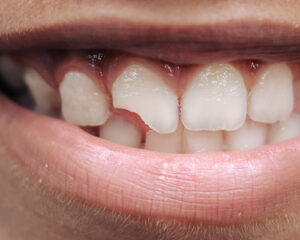 Children are often active and adventurous, which can sometimes lead to accidents involving their teeth and mouth. Common dental emergencies for kids include:
Children are often active and adventurous, which can sometimes lead to accidents involving their teeth and mouth. Common dental emergencies for kids include:
- knocked-out teeth
- broken or chipped teeth
- severe toothaches
- injuries to the gums or mouth
Immediate Steps to Take
In case of a dental emergency, it’s crucial to remain calm and take prompt action. If your child has a knocked-out tooth, gently rinse it with water (without scrubbing), and try to place it back into the socket. If that’s not possible, store the tooth in a container of milk and seek dental care immediately.
For other injuries or severe toothaches, rinse the mouth with warm water, apply a cold compress to reduce swelling, and contact your pediatric dentist as soon as possible.
Preventing Dental Emergencies for Kids
While you can’t always prevent accidents, there are steps parents can take to reduce the risk of dental emergencies. Encourage your child to wear a mouthguard while participating in sports or recreational activities. Also, be mindful of potential hazards around the house, such as hard candies, popcorn kernels, and ice.
Adams & Seaton Pediatric Dentistry Is There for You
In any dental emergency in Nashville, it’s essential to seek professional care from a Nashville pediatric dentist promptly. If your child has a dental emergency during our regular office hours, you should call us immediately. When the office is closed, our doctors, Dr. Adams and Dr. Seaton are on call. You can call to speak directly with one of the doctors without having to go through an answering service.
A Child with Dental Problems – What to Look For
Very young children may not be able to tell you what they’re feeling if they are having issues with their teeth. As a parent, you can watch for certain signs to spot a child with dental problems. In this blog, we discuss some of the signs to look for.
Some obvious things to look for are persistent bad breath and discoloration of a tooth or dark pits on a tooth. Other signs may not be so obvious.
Loss of Appetite or Food Aversions
 One very clear sign that your child may have a dental problem is shying away from or crying when offered a favorite food or drink. A damaged tooth can be sensitive to hot or cold foods.
One very clear sign that your child may have a dental problem is shying away from or crying when offered a favorite food or drink. A damaged tooth can be sensitive to hot or cold foods.
Frequently Waking Up from Sleep
If you child is frequently waking up at night or even during daily naps, the cause may be a toothache. Additionally, take notice if a child is favoring sleeping in the same position all the time. A toothache can make it uncomfortable to sleep on the side where the tooth is hurting.
Gum Swelling
If your child’s gums become dark red and swollen, it can signal a tooth infection. It also could be bacterial or fungal infections of the gum tissue itself. Because teeth are connected to the jaws and neck, an infection in one or more teeth can lead to swelling and redness in the jaw and neck as well.
If You Have a Child with Dental Problems, Reach Out to Adams and Seaton Pediatric Dentistry
Our dentists and staff are specially trained to work with children. Oral infections are serious dental problems that should be handled right away. So if you suspect there is a problem, please reach out to us and schedule an appointment as soon as possible.
The Top Pediatric Dentists in Nashville Explain Teeth Grinding
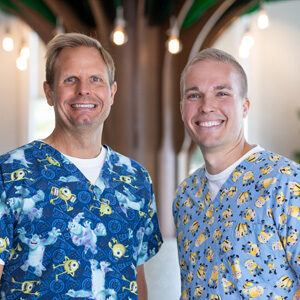 As two of the top pediatric dentists in Nashville, Dr. Adams and Dr. Seaton frequently see the problem of teeth grinding in their young patients. Many of these children have no idea they are grinding their teeth, but, in fact, three out of ten kids grind or clinch their teeth. Regular trips to the dentist can identify this habit before it damages the teeth.
As two of the top pediatric dentists in Nashville, Dr. Adams and Dr. Seaton frequently see the problem of teeth grinding in their young patients. Many of these children have no idea they are grinding their teeth, but, in fact, three out of ten kids grind or clinch their teeth. Regular trips to the dentist can identify this habit before it damages the teeth.
Symptoms of Teeth Grinding
Since most children aren’t aware of their teeth grinding, you as parents must look for the following symptoms:
- the noise of teeth grinding when they sleep
- chipped or worn down teeth
- complaints about a sore or aching jaw
- pain when chewing
- headaches
Causes of Teeth Grinding
Most children will outgrow this habit, but consider the following reasons why they might be grinding their teeth:
- Their teeth aren’t aligned correctly.
- They are experiencing pain from an ear ache or teething.
- They may be stressed from a change in routine or an argument with someone in their family.
- They may have other medical issues or side effects from medicines.
Help for Teeth Grinding
Both dentists and parents can help treat the grinding of teeth. A dentist can help a child by preparing a molded guard for the child to wear at night. Parents can help in these ways:
- Make sure their child is relaxed before bedtime.
- Find out if there is anything upsetting your child. They could be worried about moving, being away from home the first time, or a change in family dynamics.
Call the Top Pediatric Dentists in Nashville If You Are Concerned
At Adams and Seaton Pediatric Dentistry, we are skilled in dealing with teeth grinding. If your child has this problem, or if your child has any other dental problems, please call us for an appointment.
A Green Hills Pediatric Dentist Gives Tips for Soothing a Teething Baby

Babies can become especially fussy or seemingly sick while their new teeth emerge. Some people call this process “cutting teeth,” but in reality, teeth don’t actually cut through the gums. The body releases hormones that cause cells in the gums to die and separate so the teeth can come through. This process causes tenderness, swelling and overall discomfort. Babies can even run a low-grade fever when they are teething. As a Green Hills pediatric dentist, George Adams, Jr. has some helpful tips for parents.
Tips for Soothing Teething Pain
Teething is a natural process that every baby goes through. The most difficult period is usually between six and ten months. Try some of these methods to soothe your child when teething:
- After washing your hands, gently rub your baby’s sore gums to ease the pain temporarily.
- Use a clean, cold, damp washcloth to massage the gums. The coldness can help reduce inflammation.
- Provide your baby with a proper teething ring. Avoid liquid-filled products. Instead choose silicone or rubber based teething rings, which are easy to disinfect. You can put the teething ring in the fridge to help reduce swelling, but do not freeze the ring. Freezing temperatures can damage the gum.
- We do not recommend benzocaine gels, sprays, or ointments. Benzocaine is easily absorbed into the blood stream by tissue in the mouth. It can result in a condition called methemoglobinemia, which can be fatal.
Note: When your child’s teeth start to emerge, you should start brushing their child’s teeth two times a day with a very soft brush.
For Help Call Your Green Hills Pediatric Dentist at Adams and Seaton.
Teething can be a stressful process for both parents and babies. Reach out to us for additional guidance if you need it. Adams and Seaton Pediatric Dentistry in Green Hills has been partnering with parents since 1977. Contact us today to start your child’s oral preventative care!
The Benefits of Early Childhood Dental Visits
 Most parents think their children need to have a mouth full of teeth before they take them to the dentist, but this is not true. The American Academy of Pediatric Dentistry recommends a child visit as soon as the first tooth appears or, at least, before his first birthday. We at Adams and Seaton Pediatric Dentistry are one of the endorse the benefits of early childhood dental visits.
Most parents think their children need to have a mouth full of teeth before they take them to the dentist, but this is not true. The American Academy of Pediatric Dentistry recommends a child visit as soon as the first tooth appears or, at least, before his first birthday. We at Adams and Seaton Pediatric Dentistry are one of the endorse the benefits of early childhood dental visits.
Erase the Fear Early
Many people, young and old, fear the dentist. Starting visits at an early age can help erase those fears. The obvious reason is that children get use to the office and dentist. Familiarity leads to comfort.
Two ways that pediatric dentists try to make early visits more comfortable include:
- Creating a fun atmosphere in the office by including toys and games that will take children’s minds off the visit and help them feel comfortable.
- Allowing children to watch TV during the treatment.
Early Childhood Dental Visits Are Preventative
Dentists not only help parents realize the benefits of good oral hygiene, but they can detect dental problems early. These are problems a dentist will look for:
- Cavities in baby teeth. Baby teeth are more likely to develop cavities than adult teeth. Regular visits will detect problems early, preventing tooth and gum problems.
- Missing teeth or bite problems.
- Back teeth decay. Sealants may need to be applied to act as a shield for the back teeth. These teeth are often susceptible to germs and food remaining in the grooves.
- Teeth grinding.
Learn more about the preventative care we offer at Adams and Seaton.
Adams and Seaton Pediatric Dentistry – Most Trusted Pediatric Dentist f in Nashville.
Families have trusted us since 1977, when George Adams, Sr. opened the practice. Adams and Seaton Pediatric Dentistry is one of the best pediatric dentists in Nashville and we are ready to assist you with your child’s dental care. Call us today.
Avoiding Enamel Erosion in Your Child’s Teeth
Enamel is a thin, but very hard outer covering of the tooth. It’s actually the hardest tissue in the human body. Enamel helps protect teeth from daily use such as biting and grinding. It also insulates the teeth from hot or cold temperatures and chemicals. Because it cannot “grow back,” preventing or stopping enamel erosion is extremely important.
Causes of Enamel Erosion

Over time, enamel can start to erode due to certain habits, such as:
- Brushing teeth with too much pressure or force
- Consuming acidic foods and beverages (sodas and candies)
- Neglecting to practice good oral hygiene routines
- Grinding and clenching the teeth
Symptoms of Erosion
The signs of enamel erosion vary, depending on what stage of erosion the enamel is in. Watch for these signs:
- Sensitivity to sweets and hot or cold food. In the early stages, your child might feel a twinge of pain. But in later stages of erosion, teeth become extremely sensitive. Your child may feel a painful jolt that takes his or her breath away.
- Yellowing of teeth.
- Cracks and chips. The edges of teeth also become more rough and irregular enamel erodes.
- Appearance of smooth, shiny surfaces on the teeth. This is a sign of mineral loss.
What to Do?
Even though tooth enamel does not regenerate, there is something you can do. You can help your child remineralize the teeth with these healthy habits:
- Use fluoride toothpaste and mouthwash.
- Eat foods that are high in vitamin D, calcium and vitamin K (cheese, milk, yogurt, salmon, tuna, seeds, nuts, avocados, olive oil, carrots ,and fruits).
- Cut way back on sugar intake.
- Get regular teeth cleanings at the dentist.
Still Have Questions about Enamel Erosion?
At Adams and Seaton, we are Nashville pediatric dentists who care and we’re here to answer your questions. Please don’t hesitate to reach out to us. Our staff and pediatric dentists are happy to discuss any of our treatments or recommendations with you!
Should Children Use Mouthwash?
As one of the leading pediatric dentists in Nashville we often get the question “should children use mouthwash?” Parents know that brushing and flossing are an important part of children’s oral hygiene. But most pediatric dentists in Nashville would not recommend mouthwash for children. In fact, it may actually be harmful.
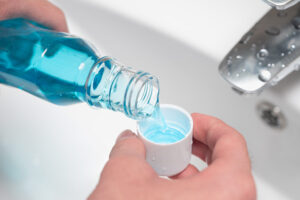 Why Pediatric Dentists in Nashville Don’t Recommend Mouthwash for Children
Why Pediatric Dentists in Nashville Don’t Recommend Mouthwash for Children
Teenagers and adults are recommended to use mouthwash as the final step in their oral hygiene. But if you encourage your child to drink lots of water, mouthwash is unnecessary. Drinking water increases saliva which helps to keep the mouth clean.
There are several reasons why mouthwash is unnecessary and may even be harmful for young children. Young children don’t understand the practice of spitting out the mouthwash. If they swallow it, the alcohol and fluoride in the mouthwash could lead to problems.
Swallowing too much fluoride can lead to fluorosis, a disease found in children that damages the teeth. And many mouthwashes contain alcohol which can cause vomiting or breathing difficulties in children.
Safety Precautions
Many mouthwashes come in packaging that is attractive to children. Take these precautions when mouthwash is in your bathroom.
- Keep the mouthwash in a place where young children cannot reach it.
- Teach your child how to swish water in his mouth and then spit it out. If he accidentally swallows mouthwash, he will be familiar with how to spit it out rather than swallowing it. (If your child swallows a small amount of mouthwash, he probably won’t have any side effects.)
- If you child swallows a large mount, dangers can arise. Call the poison help line at 1-800-222-1222 to get advice on steps you can take or if a trip to the hospital is necessary.
Adams and Seaton Are Pediatric Dentists in Nashville
We are specially trained to provide primary and specialty oral care for the unique dental needs of infants and children through adolescence, including preventative care, oral sedation, and hospital care. Call us for an appointment today.
Dental Care For Special Needs Children
Unfortunately, children with special needs and disabilities usually develop more dental problems than children in their age group. So dental care for special needs children is very important.
Unique Problems For Children With Special Needs
A pediatric dentist can help special needs children with their dental needs. There are special dental challenges for these children. For example, if a child is not able to brush and floss correctly, gum diseases are more prevalent. Additionally, if a child is on medications with a high-sugar content, he or she is more likely to develop cavities as well as gum disease.
Choosing the Right Dentist
 Additional training that pediatric dentists receive allows them to address special needs. So, pediatric dentists know how to ease anxiety in special needs children and make them comfortable. Many pediatric dentists use these methods to allay a child’s anxiety or discomfort:
Additional training that pediatric dentists receive allows them to address special needs. So, pediatric dentists know how to ease anxiety in special needs children and make them comfortable. Many pediatric dentists use these methods to allay a child’s anxiety or discomfort:
- Visit the dentist for a trial run, sit in the dental chair, and look at the instruments
- Allow extra time for appointments so the atmosphere is
- Encourage parents to remain in the room
- Allow a child to bring a favorite toy or security blanket.
- Play soothing music
- Let children watch a video on TV during their appointment
Adams and Seaton Provides Dental Care for Special Needs Children
If you have a child with special needs, before your first visit, please call us. You can talk with one of our dental assistants to discuss your child’s special needs and sensitivities. This will give us time to assess how to proceed with your child’s care.
At Adams and Seaton, we are one of the most trust pediatric dentists Nashville has to offer and we have several options for special needs. Of course, we may be able to meet all the needs during a regular appointment. But we also can give oral sedation in our offices when needed. And we also can treat patients under general anesthesia in the hospital. Call us for more information.
What Should Parents Do about Sensitive Teeth in Children
Does your child complain about a tooth that “hurts”? Sensitive teeth in children might be an indication of a serious issue. Adams & Seaton are the Pediatric Dentists Nashville parents consult when their children have teeth sensitivity or other dental problems.
Common Causes of Sensitive Teeth in Children
Many parents might overlook a child’s complaint about teeth hurting. However, that may not be a good idea. A trip to the dentist can determine why there is pain. These are the most common causes of tooth sensitivity:
- Sugar. All children love sweets, but too much sugar can breakdown the tooth enamel and leave your child with tooth pain.
- Cavities. If a particular tooth hurts, it might be tooth decay. As a parent you need to schedule regular checkups at the dentist to check for tooth decay.
- New Teeth. Losing baby teeth and replacing them is part of every child’s life. But this may lead to mouth pain. Usually, a trip to the dentist is not necessary for this, but limit extremely hot or cold foods which can worsen the pain.
- Tooth Damage. If there has been no trauma to the mouth, a tooth can be damaged if your child grinds his teeth. This could result in a cracked tooth. Popcorn and chips can also cause damage.

Ways to Avoid or Reduce Tooth Sensitivity
Consider these ways to avoid or treat your child’s tooth sensitivity:
- Limit Sugary Snacks. Also limit drinks that often have “hidden” sugars – such as orange juice.
- Good Oral Hygiene. Brushing and flossing twice a day will lower the risk of cavities. Toothpaste especially designed for children with sensitive teeth is available. Soft-bristle tooth brushes will also help. In order to strengthen teeth flavored fluoride treatments are available.
- Regular Check-Ups. Fillings or crowns may be necessary if your child has a cracked or chipped tooth.
Your child and his teeth are important to us at Adams Pediatric Dentistry. Make your child’s appointment today.
How Can I Help My Child With Dental Anxiety?
We at Adams and Seaton Pediatric Dentistry have been specializing in pediatric dentistry in Nashville since 1977. Many parents want to know the answer to the question how can I help my child with dental anxiety? In this most recent blog post you will find information and tips on managing dental anxiety in children.
Signs of Dental Anxiety in Your Child
Look for these signs of dental anxiety in a child on or near the day of the dental appointment:
- complaining of a stomach ache
- crying and begging not to go to the dentist
- temper tamtrums
Tips for Preventing Dental Anxiety in Children
There are ways to prevent dental anxiety in your child. And you as a parent can help.
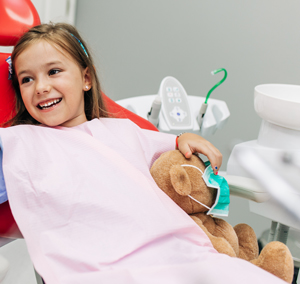 You can help prevent your child from being afraid of the dentist by:
You can help prevent your child from being afraid of the dentist by:
- Making it fun. Allow them to take a special toy with them to help them remain calm. You might reward them after the visit to reinforce that this was a positive experience.
- Setting a good example. Do not let your child see that you yourself fear a visit to the dentist.
- Speak positively about your own dentist visits. This helps children see that it is a visit they can look forward to.
- Allowing your child to tour the dentist’s office. Do this before the first visit.
- Establishing a routine. Take your child for regular check-ups. When you were a child, you probably only went to the dentist when there was a problem. This increased your fear of the dentist because you were always hurting when you went. A regular schedule will help a child see that a trip to the dentist doesn’t mean something is wrong.
- Having fun with dental care at home. Allow them to choose a favorite toothbrush and toothpaste. Brush and floss together.
- Understanding their fear. Talk with them if they appear anxious and address their specific fears.
What to Do When Dental Anxiety in Your Child is Overwhelming
At Adams and Seaton, we realize that some anxiety is too great for your child to overcome. We have solutions. Learn more about our oral sedation pediatric dentistry services.
Nashville Pediatric Dentists Discuss Impacted Teeth
As your child begins to lose baby teeth and get permanent teeth, be sure to watch for signs of impacted teeth. An impacted tooth is a tooth that does not erupt; it remains embedded in the jawbone or gum. An impacted tooth may not be painful. But if you notice your child complains of mouth pain or has red or swollen gums, you should call a pediatric dentist.
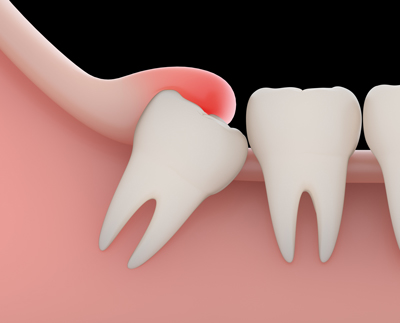
Problems Associated with Impacted Teeth
If an impacted tooth partially emerges, it can become infected and swollen because it traps food. Pain can result in the tooth, in neighboring teeth, or in your child’s ear. Additionally, an impacted tooth can get a cavity or damage the roots of neighboring teeth, especially if it is growing in the wrong direction.
What Causes Impacted Teeth?
Sometimes a tooth cannot erupt because there is not enough room in the jawbone for the tooth. But for some children, it just happens. Genetics can play a role. So, if you as a parent had an impacted tooth, your child may experience the same problem. Unfortunately, there is no way to stop a tooth from becoming impacted.
Fixing an Impacted Tooth
The procedure can be relatively simple or complicated, depending on the extent of the problem.
- It may be that extracting the baby tooth is all that is needed.
- If the jaw is too narrow, it may be necessary to expand the jaw.
- Other, more complicated problems might require oral surgery or orthodontic treatment.
Turn to the Pediatric Dentists at Adams and Seaton
Dr. Adams and Dr. Seaton are two of the most trusted pediatric dentists Nashville has to offer. If you suspect a tooth is impacted, bring your child in as soon as possible. A checkup and x-rays can diagnose subtle problems even while the baby teeth are still present.
How An Early Pediatric Dental Appointment Can Help Fight Cavities
If your child has only one tooth, it’s not too early to take your child to a pediatric dentist. A recent study showed that even the youngest kids are at risk for developing cavities. That’s why an early pediatric dental appointment can help your child’s oral health. Your dentist at Adams Seaton Pediatric Dentistry looks forward to seeing your child when the first teeth erupt.
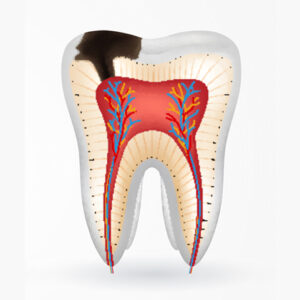
What Causes Tooth Decay
A cavity is actually a symptom of an infectious disease called “caries. Decay results from an active infection that thrives when bacteria, acid, and a food source are present in the mouth. Saliva is a natural buffer, and a balanced pH can combat tooth decay. But when the pH gets too low, caries can flourish. Things that lower pH in the mouth include acidic food and drink, mouth breathing, and certain medications.
Early Childhood Caries – ECC
The ADA (American Dental Association) recognizes ECC as a significant public health problem in selected populations and in the general population. So, it advises that a child’s first visit to the dentist should occur within six months of the first tooth.
To further discourage ECC, the ADA points out that Infants and young children should eat a balanced diet. They should not be allowed unrestricted, at-will consumption of liquids, beverages and foods containing fermentable carbohydrates. These include juice drinks, soft drinks, milk, and starches).
Additional advice from the ADA includes:
- Be sure infants finish their bedtime and naptime bottles before going to bed.
- Avoid “at-will” nocturnal breastfeeding.
- Encourage children to drink from a cup by their first birthday.
- Discourage at will, frequent use of a training cup.
Make Your Child’s Early Pediatric Dental Appointment
To make your infant’s first appointment, contact Adams and Seaton Pediatric Dentistry. And we will be happy to discuss more helpful tips about how to avoid cavities during your appointment.
How Often Should My Child Have a Teeth Cleaning?
 If you are wondering about the answer to this question, we have the answer for you in this blog. The American Dental Association (ADA) recommends getting a teeth cleaning and checkup every six months. This goes for children as well as adults. You should begin taking your child to the dentist after the first tooth erupts or at least by the first birthday.
If you are wondering about the answer to this question, we have the answer for you in this blog. The American Dental Association (ADA) recommends getting a teeth cleaning and checkup every six months. This goes for children as well as adults. You should begin taking your child to the dentist after the first tooth erupts or at least by the first birthday.
Why Do Kids Need a Professional Teeth Cleaning?
Good oral hygiene at home and professional cleaning will keep your child’s teeth and gums healthy and strong. Even the most consistent and persistent at-home brushing and flossing cannot reach certain areas. The dentist has special tools to scrape away built-up plaque and tartar in the hard-to-reach places – between the teeth and under the gumline.
Additionally, a pediatric dentist also does a wellness check during a cleaning. The dentist checks for signs of dental disease or decay and recommends any necessary treatment. The dentist also can see if teeth are developing correctly or whether they would benefit from early orthodontic intervention.
Other Benefits to Routine Teeth Cleanings for Kids
Regular visits to the dentist for teeth cleanings help kids become comfortable with dental visits early on. It builds up confidence and comfort levels. So, they are less likely to experience anxiety or fear of going to the dentist in adolescence and adulthood. At Adams and Seaton Pediatric Dentists West Nashville, our adventurous, relaxed, and non-intimidating atmosphere helps eliminate the fear many children associate with dental visits.
More Questions? We Have Answers!
If you have any questions about our dental services, or if you’re ready to schedule your child’s teeth cleaning, contact us today. Don’t forget, regular brushing at home is important, but it’s not enough to keep teeth and gums healthy and strong.
General Family Dentist vs. Pediatric Dentist – What is the Difference?
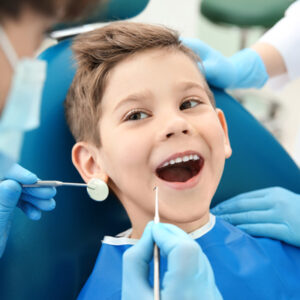 As a parent, perhaps you are wondering, “Should I take my child to my dentist or to a pediatric dentist?” You might be thinking of the convenience of the whole family going to the same dentist. But the services of a pediatric dentist for your child can result in benefits that far outweigh convenience.
As a parent, perhaps you are wondering, “Should I take my child to my dentist or to a pediatric dentist?” You might be thinking of the convenience of the whole family going to the same dentist. But the services of a pediatric dentist for your child can result in benefits that far outweigh convenience.
Think, for a moment, about medical doctors. A general family dentist is similar to a general practitioner because he can treat patients of any age. But just like a pediatrician, a pediatric dentist has additional, specialized training in treating young patients.
Providing Better Treatment for Your Child with Special Training
A pediatric dentist has two to three years of additional required training beyond the training of a family dentist. So, this special training provides knowledge of and aptitude for treating the unique needs of infants, children, and adolescents.
A pediatric dentist is an expert in childhood dental developmental stages. They can monitor the growth and development of your child’s teeth and bite. And they provide early detection and treatment of cavities or any dental problems.
Removing the Stress from the Treatment
Pediatric dentists also know that their offices need to be designed especially for the comfort of children. This is all part of an overall plan to take the stressfulness out of the treatment.
You Can Trust Your Child to Adams & Seaton Pediatric Dentistry
Pediatric dentists, like Dr. Adams and Dr. Seaton at Adams & Seaton Pediatric Dentistry, are the “pediatricians of dentistry.” You will not find a Nashville Pediatric Dentist with more care and concern for children than Dr. Adams or Dr. Seaton.
You can trust them to treat complex conditions that require pediatric expertise. They are both trained in child growth and development, child psychology, oral-facial trauma management, treatment of patients with special needs and medically compromising conditions, and treatment utilizing conscious sedation and general anesthesia procedure.
We serve families with pediatric dentistry in Nashville, Green Hills, Belle Meade, West Meade, West End and surrounding areas.
Dental Options for Sensory Issues

If you have arrived at this blog by searching for dental options for sensory issues, we at Adams and Seaton Pediatric Dentistry would like to help. We know going to the dentist can be overwhelming and upsetting for a child with sensory issues. Our dentists and staff want to do everything we can to make every child’s dental appointment as calm and stress-free as possible. No pediatric dentist Nashville has to offer is more caring than Dr. Adams or Dr. Seaton.
What Is Sensory Processing Disorder?
Children experiencing sensory processing disorders are either “sensory seekers” or “sensory avoiders.” Sensory seekers gravitate toward specific sensory inputs. For example, they might find brushing their teeth a soothing experience. However, sensory avoiders may experience external stimuli as either irritating or painful. We have
Preparing for a Trip to the Dentist
For children with sensory issues or just too much dental anxiety, we have suggestions for you. First, schedule a tour of our offices before the appointment date. Getting familiar with the offices before the appointment may ease some of the tension on the day of the appointment. Secondly, let us introduce your child to our staff and dentists. Again, familiarity is key.
Finally, let our dental staff know your concerns and your child’s specific needs so we can address them. For example, our reception area is very bright because of its large windows. This could be a problem for a child with light sensitivity issues. If we know this problem exists, we will take you and your child to one of our rooms with low light as soon as you arrive.
Are You Looking for a Pediatric Dental Options for Sensory Issues in Nashville?
Adams and Seaton Pediatric Dentistry Nashville welcomes children with sensory issues. Dr. Adams, Dr. Seaton, and their staff work diligently to create an environment that is a safe space for all children. If you have any questions or concerns, please call to schedule a tour, consultation, or appointment today!
Best Wishes for Christmas
To all our patients and their parents, we wish you a Merry Christmas. As you know, our doctors and staff have a special affinity for working with children. We count it a great privilege to work with your children, especially during Christmas time. There is no better way to see Christmas than through the eyes of a child. We would like to take this opportunity to thank you for allowing us to be a small part of your children’s lives. Think of it as your special gift to us.
Tips for Dental Care During Christmas
Christmas time is a season of giving and sharing, singing and joy, and, unfortunately for children’s teeth, sugary treats galore. It’s a time when parents are not so strict about what their children eat. We aren’t suggesting that parents deny their children these special treats at Christmas. But we do want to give parents a reminder that they need to pay a little more attention to dental hygiene during this time.
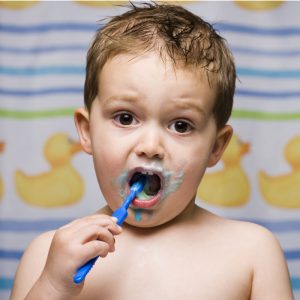 Here are three tips for Christmas:
Here are three tips for Christmas:
- Step up the brushing routine. We hope your child’s normal tooth brushing routine is two times a day, for two minutes. If not, then, at a minimum, adopt this routine. If your child is already brushing twice a day, add at least one more brushing, especially after a sugary treat.
- Eat some teeth-healthy snacks too. In addition to the cookies and candy, follow Rudolph’s example and eat some carrots.
- Drink water. Encourage drinking water instead of sodas, sports drinks and juices with lots of sugar. Offer water after sugary snacks to help rinse the sugar from the teeth.
Merry Christmas to All and Happy New Year
Our Safety Procedures During COVID-19
People are becoming accustomed to the safety procedures for COVID-19: stay home if you’re sick, wear a mask in public, keep a safe distance from others, etc. These procedures make us feel pretty safe when we are at the grocery store, but going to the doctor or to the dentist? That’s on another level entirely. But you can feel safe at Adams and Seaton Pediatric Dentistry, the pediatric dentists Nashville parents have trusted for years.
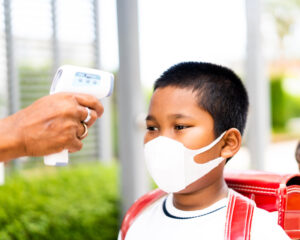 What to Expect at an Appointment
What to Expect at an Appointment
Prior to an appointment, you will receive a questionnaire by text that you need to fill out before the appointment. The questionnaire asks screening question such as:
- Have you traveled recently?
- Do you have any symptoms of COVID-19?
- Have you had contact with anyone who has tested positive for COVID-19?
Once you arrive at our office, we ask that you text us to notify us you are in the parking lot. When our waiting room is clear and there are no other patients nearby, we ask you to come inside. We also ask you to wear a mask when you come in. (If you don’t have one, we will gladly provide one for you.)
Before checking in, we take each patient’s temperature (including parents/guardians). Additionally, we ask the same screening questions again to make sure nothing has changed since the initial text message questionnaire. (Our doctors and staff do the same every day before starting work.)
While you wait in our waiting room, there will be no more than one other family in the waiting room with you. And the distance between you and the other family will be over 15 feet apart.
Precautions We Use During Treatment
In between patients, we are taking the same hygienic precautions we have always taken. We are wiping each chair with CaviWipes, followed by soap and water. Now, we are using every other chair to adhere to the social distancing standard. And lastly, we also have air purifiers throughout our hygiene bay to prevent the spread of germs and virus in the air. And of course, our doctors and dental assistants are wearing proper PPE at all times.
Nashville TN Pediatric Dentist | Teething Tips for Toddlers
Your baby’s first teeth developing can be a difficult experience for both you and your child. Most teeth begin to appear as early as 3 months to 1 year old. This process can be uncomfortable and cause sleepless nights. However, there are things you can do to keep your toddler less irritable while they are teething.
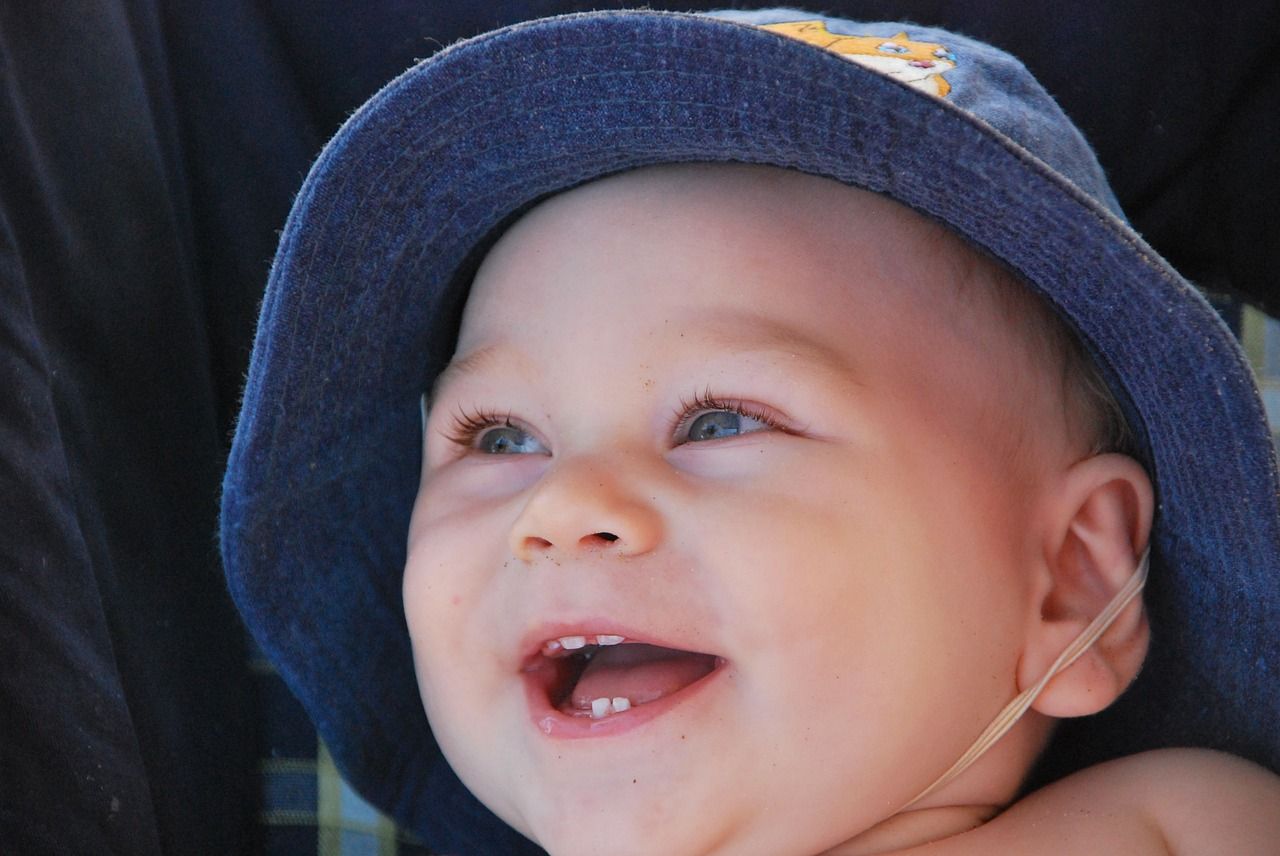
What to Expect
Sometimes it can be difficult to tell when your baby starts teething. Below are a few symptoms to look for:
- Fussiness
- Trouble Sleeping
- Irritability
- Loss of appetite
- Drooling more than usual
It has been thought that teething may cause fever and diarrhea, but research shows that this is not true. If your baby is experiencing any of these symptoms or they worsen, call us for an appointment.
What You Can Do
View the many different ways to safely soothe your teething baby below:
- Rub your baby’s gums. Use a clean finger or moistened gauze pad to rub your baby’s gums. The pressure can decrease any discomfort your baby might be feeling.
- Keep their mouth cool. A cold washcloth, spoon, or teething ring can sooth your baby’s gums. However, make sure the object is not frozen because extreme cold can be harmful. Also monitor your baby so they do not swallow any small objects.
- Introduce hard food. If your baby is already eating solid food, you might want to give them a chilled carrot or apple slice. This can ease their pain and make them less irritable.
Tip: Contact us before using any teething medications or numbing gels that may pose a risk to your baby.
Teething is a difficult process for not only your baby, but also you. You can relax knowing your baby is more comfortable by using the tips above.
Also, don’t forget to schedule your baby’s first dental appointment as soon as their first tooth has fully emerged. Contact Adams & Seaton Pediatric Dentistry for an appointment with our Nashville pediatric dentist today.
Adams & Seaton Pediatric Dentistry
Phone: (615) 297-7597
4515 Harding Pike, Suite 114
Nashville , TN 37205
Nashville TN Pediatric Dentist | 5 Fun Teeth Facts
Test your child’s (and maybe your own) knowledge with these five fun facts about teeth and brushing. How many do you know without checking?
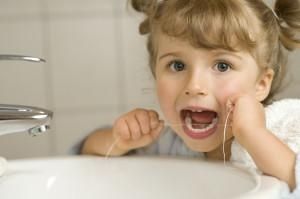
- What color is your toothbrush? The most common color is blue, followed by red. If you will be spending the night somewhere or are going camping, take a toothbrush that isn’t blue to avoid confusion!
- It’s a commonly repeated story that George Washington had wooden teeth, but this is not the case. In fact, his dentures were made from bone, brass, gold, and ivory. Washington suffered from extensive dental problems his entire life, and only had one tooth left by the time he became president.
- Do you know how many teeth you have? Kids have up to 20 teeth and a full adult set has 32. Luckily, you don’t have as many teeth as some armadillo species, which can have more than 100 teeth!
- The tooth fairy’s pay rate has increased over time. In 1950, the average pay for a tooth was 25 cents. By 1988, the tooth fairy was paying $1 per tooth, and in 2015 that number jumped to an average of $3.19.
- Tooth enamel is the hardest substance in your body. 96% of enamel is made of minerals.
Brushing twice each day for two minutes, and flossing regularly is the key to keeping your enamel free from decay.
How many of these fun teeth facts did you already know? The most important fact to know about your teeth is that taking care of them is essential to your health. Make sure your child is keeping up with their oral hygiene routine, as well as visiting us for a regular examination.
For more tips on keeping your child’s teeth healthy or to schedule your child’s next visit to our Nashville pediatric dentist, please contact Adams & Seaton Pediatric Dentistry. We look forward to seeing you!
Adams & Seaton Pediatric Dentistry
Phone: (615) 297-7597
4515 Harding Pike, Suite 114
Nashville , TN 37205
Nashville TN Pediatric Dentist | Healthy Transitions: Trading Bottles for Cups
Helping your child switch from bottles to cups can be challenging. Babies may become emotionally attached to their bottles as a source of comfort as well as nutrition.

However, bottles can also become dangerous to your child’s teeth over time. Continuing to use a bottle too long can cause your child’s palate to narrow. This can lead to an increased need for orthodontic treatment as they grow.
Bottles also expose a baby’s teeth to liquids over an extended period of time. Liquids such as milk, formula, and juice contain sugars that can increase the risk of tooth decay. To help protect your child’s teeth, you should encourage your child to start drinking from a cup by their first birthday.
It is important to consider your choice of training cup. There are many and varied options of child training cups available. Here are some things to consider when selecting cups for your child.
Keep the goal in mind when choosing a style of training cup for your child.
Cups advertised as “no spill” often contain a special valve beneath the spout. This valve does protect against easy spilling, but also prevents sipping. Instead, these cups require your child to suck on the spout, essentially replacing one type of bottle with another. This can slow your child’s training on cup usage. In some cases, these valves may even require a high level of suction, making them frustrating to use.
Look for a cup with a simple spout rather than a “no spill” spout.
These cups are easy for your child to use and help them learn to sip. Cups with handles can be easier for small hands to learn to hold. If spills are a concern, look for a cup with a weighted base that can help it self-right.
Remember that transitions occur in stages.
Phase out the bottle in favor of the cup, don’t try to change all at once. Once your child can use the cup, limit the bottle to water. This can help make the bottle less desired. Provide the bottle less often over time to allow your child time to adjust. Once your child has mastered training cups, start offering a small plastic cup without a lid. When they can use this new cup, phase out the training cup.
For more information about bottle to cup transitions or to schedule an appointment with our Nashville pediatric dentist, contact Adams & Seaton Pediatric Dentistry.
Adams & Seaton Pediatric Dentistry
Phone: (615) 297-7597
4515 Harding Pike, Suite 114
Nashville , TN 37205
Nashville TN Pediatric Dentist | 4 Ways to Make Oral Hygiene Fun
It can be difficult to get your child to practice proper oral care unsupervised. However, the long-term benefits of an early start to optimal oral hygiene are worth the effort. Below are some tips to help you make oral health a fun part of your child’s daily routine.

- Brush with a Buddy.
Your child will be much more excited to floss and brush their teeth if it’s a family activity. Brush your teeth with your child, or if they have siblings, have the kids brush together. This will help make the time more fun and help your child to subconsciously accept oral hygiene as a normal part of a daily routine.
- Choose the Right Supplies.
Let you child pick out their own toothbrush. This will help them feel like they have a say in their oral care routine.
- Reward Good Behavior.
A little incentive can go a long way. When trying to get your child to floss and brush on their own, it might be helpful to implement a simple reward system. For example, your child could track their own brushing on a calendar and trade it in for a small gift or prize after a month of twice daily brushing.
- Educate to Empower.
It’s important that your child understands why practicing good oral hygiene is so important. Use this as an opportunity to teach them about the dangers associated with poor oral health.
There are a lot of strategies you can use to make brushing a fun part of your child’s day, rather than a chore. You know your child better than anyone, so don’t be afraid to come up with some additional techniques that will work better for them!
Regular professional dental cleanings are an essential part of any good oral hygiene routine, so contact Adams & Seaton Pediatric Dentistry to schedule your child’s next appointment with our Nashville pediatric dentist today.
Adams & Seaton Pediatric Dentistry
Phone: (615) 297-7597
4515 Harding Pike, Suite 114
Nashville , TN 37205
Nashville TN Pediatric Dentist | When Should My Child Get Braces?
Braces can help create a straight, healthy smile that lasts a lifetime. Ideally, any corrections to the bite, jaw, or mouth structure should be performed during adolescence while the mouth is still forming. Here’s what you need to know before your child begins treatment with braces.
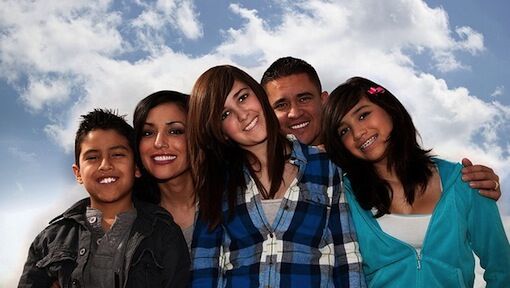
Why Get Braces?
Braces are used to correct improper bites. If you child has an overbite or underbite, braces may be recommended along with another orthodontic appliance to shift the jaw. Additionally, braces are used to correct gaps between teeth as well as teeth that are growing in a crooked position.
The Importance of Starting Early
Braces are more effective in younger patients because the jaw structure is still malleable. According to the American Dental Association, the majority of orthodontic treatment cases typically begin between the ages of 8 and 14. Your child’s particular course of treatment is going to be dependent on a number of factors including mouth structure and the progress of erupting adult teeth.
Braces Can Improve Your Child’s Life
It may be difficult for your child to imagine an extended period of time without being able to eat sticky, gummy foods or chew bubblegum, however there are numerous benefits to your child’s overall health and well-being that can be achieved with braces. By straightening teeth and closing gaps, your child’s gum health will be improved. Braces can prevent dental complications later in life such as the need for more advanced corrective procedures. Your child’s confidence will also be boosted once they see the results of a straight, beautiful smile.
We invite you and your child to discuss the benefits of having braces with our team. During your appointment, we will provide a complete examination and make a recommendation for a treatment plan that will work best for your child.
To schedule your child’s next visit with our Nashville pediatric dentist, please contact Adams & Seaton Pediatric Dentistry.
Adams & Seaton Pediatric Dentistry
Phone: (615) 297-7597
4515 Harding Pike, Suite 114
Nashville , TN 37205
Nashville TN Pediatric Dentist | 7 Things to Do with Your Child Before Age 7
As you have likely come to realize, children grow up quickly. Make sure you are savoring each moment you have with your child. Here are seven things we suggest doing with your child before they reach age 7.

- Make an Artistic Masterpiece
Art projects are always a fun activity. Create art together. Do a finger painting, or draw and color together. Your child’s art masterpieces will be a lasting memory of the time you shared together.
- Experience Snow
Do you live in a cold climate where it snows in the winter? Embrace the snow and go sledding or build a snowman. If you live where it is warm, make sure your child experiences the magic of a fresh winter snow before they grow up.
- Establish Traditions
Create fun traditions that will transcend time. Your child might be too young to remember one event, but a yearly occurrence is sure to provide for a fun memory when your child grows up. Celebrate half-birthdays or start new traditions with a surprise on Valentine’s Day or St. Patrick’s Day. Think small. It’s often life’s little moments that are cherished most.
- Read Together Each Day
Reading with your child each night is a great way to bond together over a fun story. Reading will also help your child learn and improve their reading skills, not to mention engage their ever-active imaginations.
- Teach Your Child About Honesty
Childhood provides an important time for instilling good habits and a sense of morality in our children. One of the most important lessons you can teach your child is to always be honest.
- Watch the Clouds
When the weather turns nice, enjoy a lazy afternoon outside looking up at the sky. What does your child see in the clouds? Encourage their imagination.
- Bring Your Child in for an Orthodontic Evaluation
It is important for your child to have an orthodontic evaluation by the time they reach age 7. By this time, most children will begin to grow their molars and incisors. The jaw is also still at an age where it can be formed and shaped.
As a parent, you can provide your child with a smile that will last through the years. Embrace each moment you share together, and the smiles that go with them.
If you have any questions about treatment, or would like to schedule your next visit to our Nashville pediatric dentist, please contact Adams & Seaton Pediatric Dentistry.
Adams & Seaton Pediatric Dentistry
Phone: (615) 297-7597
4515 Harding Pike, Suite 114
Nashville , TN 37205
Nashville TN Pediatric Dentist | Baby Teeth – Should My Child’s Teeth Be Removed?
Making sure your child’s mouth develops properly is important. Part of a growing mouth will mean your child’s baby teeth will come out. For many kids, baby teeth loosen and fall out on their own, but every child is different. When you bring your child in for an orthodontic evaluation, we take into consideration your child’s baby teeth. Here are some things to remember about your child’s teeth.

Is My Child on Track?
Sometimes we see parents in our office who are concerned that their child’s baby teeth have not fallen out. Each child’s mouth is going to be different. Typically, between the ages of 6 and 8, your child will lose their first teeth. This usually continues through ages 10 to 13 when the last of their baby teeth come out. Many kids experience a break between ages 8 and 10, so don’t be alarmed if your child hasn’t lost any teeth for a while.
What This Means for Orthodontic Treatment
We start any examination with a basic inventory of your child’s teeth. We look at how many they have lost and what teeth still must come in. Your child might lose teeth at a slower pace, and this usually is not cause for any concern. However, as kids reach age 12 and beyond we might consider removing baby teeth when planning orthodontic treatment. If your child is getting their second molars and has yet to lose some of their baby teeth, we likely will consider removal.
Why They Need to be Removed
Crowding is an issue when a permanent tooth begins to grow next to a baby tooth. We usually recommend removal in this instance, but it is important to note that this does not solve the issue of crowding. Usually expansion is a solution for crowding.
In our office, we use x-rays and scans to track your child’s mouth. These are a valuable resource in helping figure out the best time to have teeth removed. We can see what is coming in and decide to remove a baby tooth if it will cause complications to the new permanent tooth.
Why They Shouldn’t be Removed
Sometimes, the best course of action is to wait it out. Your child’s baby teeth have an important function in holding the required space needed for permanent teeth to come in. With missing teeth, our doctor will decide if the space between needs to be closed. Keeping teeth in place is also good for keeping your gums healthy.
Our Nashville pediatric dentist will decide if removal is needed based on your child’s teeth. Your child should be receiving regular examinations. Their fast-changing mouths need to be looked at frequently to ensure their teeth will grow properly in the future.
For more questions about orthodontics, or to schedule an appointment, please contact Adams & Seaton Pediatric Dentistry.
Adams & Seaton Pediatric Dentistry
Phone: (615) 297-7597
4515 Harding Pike, Suite 114
Nashville , TN 37205
Pediatric Dentist in Nashville TN | How To Help Your Child Enjoy Their Favorite Foods Safely
 To grow big and strong, kids need to eat plenty of great food. It also helps if they enjoy the food they’re eating. Sometimes however, the foods that your child loves most can be detrimental to their oral health.
To grow big and strong, kids need to eat plenty of great food. It also helps if they enjoy the food they’re eating. Sometimes however, the foods that your child loves most can be detrimental to their oral health.
Sour candy, carbonated drinks, potato chips, bread, and even corn on the cob can cause damage. However, your child doesn’t have to stop eating these foods altogether just to preserve their oral health.
Instead, help them enjoy their favorites safely with these helpful tips from Adams & Seaton Pediatric Dentistry.
Moderation
Bigger may be better in some cases, but it’s not always the case for your child’s favorite foods. While they may enjoy eating an entire bag of candy in one sitting, their oral health will suffer. Rather than cutting them off completely, make sure your child understands why some foods are better than others and help them maintain a balanced diet. While there’s nothing wrong with enjoying a treat every now and then, if your child sticks to a healthier diet, their teeth will thank them later in the form of a beautiful, healthy smile.
Safety Measures
There are some foods that seem healthy but could potentially cause damage to teeth. For example, chewing on ice can seem like a harmless habit, but can chip or otherwise damage teeth accidently. Even a wrong bite of corn on the cob can damage oral health in a similar way.
To protect teeth and gums, consider having your child suck on ice, or better yet, drink ice water. Stripping corn off the cob can protect teeth too.
Practice Good Hygiene
If your child does partake in candy, chips, and other similar treats in moderation, we support them. However, these foods can easily get caught in between teeth, causing the buildup of plaque, leading to tooth decay.
Make sure you help protect against the negative effects these foods can have by encouraging your kid to brush and floss right after they enjoy. Additionally, having regular appointments with our office can help ensure that your child maintains their oral health throughout their life.
Your child shouldn’t have to give up all the amazing foods they want to enjoy just to preserve their smile. With these tips, and the help of our team’s amazing pediatric dentistry, they won’t have to. Thanks for reading. If you need to schedule your next appointment with us, you can do so by calling our office at (615) 297-7597.
Adams & Seaton Pediatric Dentistry
Phone: (615) 297-7597
4515 Harding Pike, Suite 114
Nashville , TN 37205
Pediatric Dentist in Nashville | Experts in Pediatric Dentistry for Over 40 Years
 You may not have known that pediatric dentists need to be experts in at least two things. The first is, of course, providing great dental care to kids. The second expertise required however, is on how to have fun. Yes, at Adams & Seaton Pediatric Dentistry our degree in dentistry is just as important to us as our unofficial degree in all things fun. Why? Because good oral hygiene becomes much easier for you and your child when it is an enjoyable and entertaining experience.
You may not have known that pediatric dentists need to be experts in at least two things. The first is, of course, providing great dental care to kids. The second expertise required however, is on how to have fun. Yes, at Adams & Seaton Pediatric Dentistry our degree in dentistry is just as important to us as our unofficial degree in all things fun. Why? Because good oral hygiene becomes much easier for you and your child when it is an enjoyable and entertaining experience.
As a result, we dedicate a lot of time and energy to making sure your kids have a great dental experience. We also want to help make sure that your child’s love for dentistry continues outside of our office. Here, we’ll give you some of our favorite tips on how to make dental care fun for you and your child at home.
Let your child choose their tools of the trade
Let’s face it, brushing can be a lot more exciting with a cool superhero toothbrush and fun flavored toothpaste.
Kids love the grown up feeling of making decisions for themselves. Allowing them to make their own dental care choices (within reason) is a great way of helping your child feel independent and important.
Not only will they feel as if they have a say in their dental care, but they’ll also be able to have some fun and feel good while they keep their teeth both healthy and beautiful.
Have a brushing party together
From silly faces to dance parties, brushing time can be an opportunity to have fun with your child. Incorporating a designated time when the whole family brushes their teeth together can make those two minutes go by fast and be yet another experience that brings your family closer together. It may seem silly to think that a “normal” dental routine could be this important, but we ask that you give it a chance. You can thank us later.
Consider implementing a reward system
If your child has a “show me the money” attitude, we have a solution for that too. A lot of parents implement a system that rewards kids for sticking to their brushing habits. For example, if your child is able to brush their teeth two times a day, every day for a designated period of time, you may consider going out for ice cream, or seeing a new movie. Whatever reward you choose, it may be a great way to ingrain a lifetime of fantastic oral hygiene.
We hope these tips can help your child keep their smile bright and healthy, but they won’t be able to do the job alone. Make sure that your child knows that their regularly scheduled dental appointments are just as important, and just as fun, as their own brushing and flossing habits. You can visit us online or call us at (615) 297-7597 to schedule your next appointment and get more tips on all things related to pediatric dentistry from our team. We look forward to smiling with you.
Adams & Seaton Pediatric Dentistry
Phone: (615) 297-7597
4515 Harding Pike, Suite 114
Nashville , TN 37205
Dentist In Nashville | The Importance of Your Child’s First Dental Appointment
 At Adams & Seaton Pediatric Dentistry, we understand just how important your child’s first dental appointment is. More often than not, that first appointment can determine your child’s lifelong feelings toward dentistry, making it very important that all goes as well as possible.
At Adams & Seaton Pediatric Dentistry, we understand just how important your child’s first dental appointment is. More often than not, that first appointment can determine your child’s lifelong feelings toward dentistry, making it very important that all goes as well as possible.
Here are just a few of the methods we use to help create an amazing experience for both you and your child.
1.) Time is of the Essence
Our team values timeliness. That’s why we schedule our appointments and do everything we can to stick to that schedule. However, we need your help to do so and ensure a positive experience.
If your child arrives a little late to their appointment, they may feel rushed before having time to get acclimated to our office. On the other hand, if your child spends a little too much time in our office before their appointment begins, they may become restless and anxious when it comes time to meet Dr. Adams and Dr. Seaton. By working together to stay on time for your scheduled appointments, we are confident you and your child will have fun at every visit.
2.) Engaged, but Not Overstimulated
At Adams & Seaton, we enjoy teaching your child about dentistry in a fun, but calm environment. By keeping them informed and treating them with respect, we help your child remain confident in their dental care throughout their time with us. We know that if your child is too distracted by loud noises or other stimuli, we won’t be able to give them as good of an experience as we know we are capable of delivering.
3.) Keep Them Comfortable
We also make sure that your child remains comfortable throughout their visit. Nothing is worse than having to be uncomfortable in an unfamiliar place with unfamiliar people. We provide gentle, compassionate care to all our patients, making sure they remain happy and at ease throughout their time here.
4.) Have Fun With It All
If there’s one thing kids know how to do, it’s how to have fun. We happen to think we’re pretty good at it ourselves. Dr. Adams, Dr. Seaton, and our team are always smiling and laughing around the office, working hard to make sure your child has a good time. In fact, your child may have so much fun that they leave our office wanting to become a dentist when they grow up.
Adams & Seaton Pediatric Dentistry is known as the place where kids smile because of our commitment to a great patient experience and attention to detail. You can schedule an appointment online by clicking the button on the right side of our banner, or you can give us a call at (615) 297-7597. We look forward to giving your child their first amazing dental experience in a long line of future dental appointments.
Adams & Seaton Pediatric Dentistry
Phone: (615) 297-7597
4515 Harding Pike, Suite 114
Nashville , TN 37205
Nashville TN Pediatric Dentist | Healthy Transitions: Trading Bottles for Cups
Helping your child switch from bottles to cups can be challenging. Babies may become emotionally attached to their bottles as a source of comfort as well as nutrition.
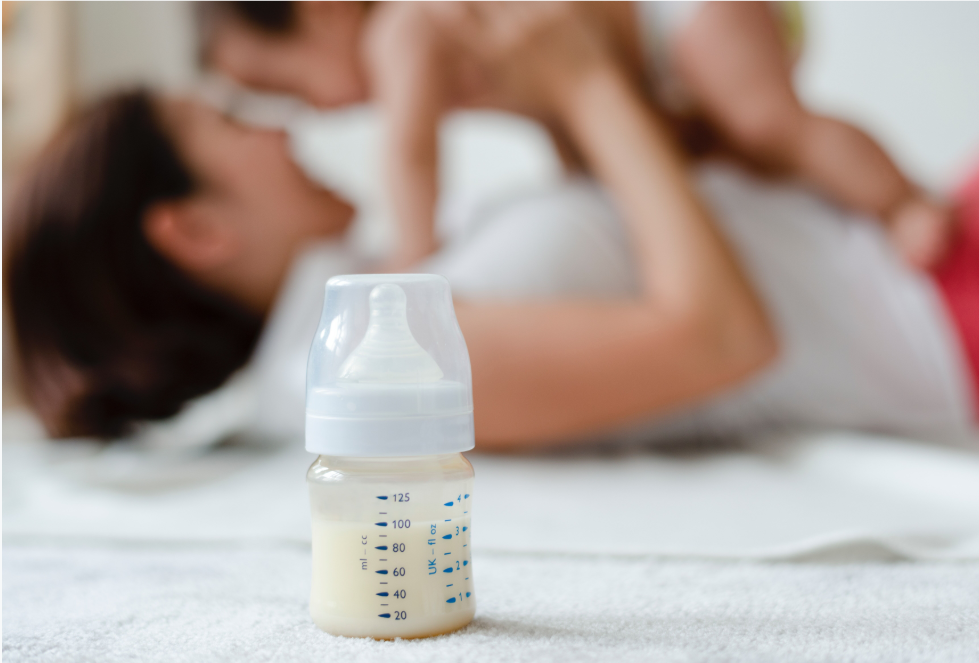
However, bottles can also become dangerous to your child’s teeth over time. Continuing to use a bottle too long can cause your child’s palate to narrow. This can lead to an increased need for orthodontic treatment as they grow.
Bottles also expose a baby’s teeth to liquids over an extended period of time. Liquids such as milk, formula, and juice contain sugars that can increase the risk of tooth decay. To help protect your child’s teeth, you should encourage your child to start drinking from a cup by their first birthday.
It is important to consider your choice of training cup. There are many and varied options of child training cups available. Here are some things to consider when selecting cups for your child.
Keep the goal in mind when choosing a style of training cup for your child.
Cups advertised as “no spill” often contain a special valve beneath the spout. This valve does protect against easy spilling, but also prevents sipping. Instead, these cups require your child to suck on the spout, essentially replacing one type of bottle with another. This can slow your child’s training on cup usage. In some cases, these valves may even require a high level of suction, making them frustrating to use.
Look for a cup with a simple spout rather than a “no spill” spout.
These cups are easy for your child to use and help them learn to sip. Cups with handles can be easier for small hands to learn to hold. If spills are a concern, look for a cup with a weighted base that can help it self-right.
Remember that transitions occur in stages.
Phase out the bottle in favor of the cup, don’t try to change all at once. Once your child can use the cup, limit the bottle to water. This can help make the bottle less desired. Provide the bottle less often over time to allow your child time to adjust. Once your child has mastered training cups, start offering a small plastic cup without a lid. When they can use this new cup, phase out the training cup.
For more information about bottle to cup transitions or to schedule an appointment, contact our office.
Nashville TN Pediatric Dentist | 4 Ways to Make Oral Hygiene Fun
It can be difficult to get your child to practice proper oral care unsupervised. However, the long-term benefits of an early start to optimal oral hygiene are worth the effort. Below are some tips to help you make oral health a fun part of your child’s daily routine.

- Brush with a Buddy.
Your child will be much more excited to floss and brush their teeth if it’s a family activity. Brush your teeth with your child, or if they have siblings, have the kids brush together. This will help make the time more fun and help your child to subconsciously accept oral hygiene as a normal part of a daily routine.
- Choose the Right Supplies.
Let you child pick out their own toothbrush. This will help them feel like they have a say in their oral care routine.
- Reward Good Behavior.
A little incentive can go a long way. When trying to get your child to floss and brush on their own, it might be helpful to implement a simple reward system. For example, your child could track their own brushing on a calendar and trade it in for a small gift or prize after a month of twice daily brushing.
- Educate to Empower.
It’s important that your child understands why practicing good oral hygiene is so important. Use this as an opportunity to teach them about the dangers associated with poor oral health.
There are a lot of strategies you can use to make brushing a fun part of your child’s day, rather than a chore. You know your child better than anyone, so don’t be afraid to come up with some additional techniques that will work better for them!
Regular professional dental cleanings are an essential part of any good oral hygiene routine, so contact our dental team to schedule your child’s next appointment today.
Nashville TN Pediatric Dentist | 7 Things to Do with Your Child Before Age 7
As you have likely come to realize, children grow up quickly. Make sure you are savoring each moment you have with your child. Here are seven things we suggest doing with your child before they reach age 7.

- Make an Artistic Masterpiece
Art projects are always a fun activity. Create art together. Do a finger painting, or draw and color together. Your child’s art masterpieces will be a lasting memory of the time you shared together.
- Experience Snow
Do you live in a cold climate where it snows in the winter? Embrace the snow and go sledding or build a snowman. If you live where it is warm, make sure your child experiences the magic of a fresh winter snow before they grow up.
- Establish Traditions
Create fun traditions that will transcend time. Your child might be too young to remember one event, but a yearly occurrence is sure to provide for a fun memory when your child grows up. Celebrate half-birthdays or start new traditions with a surprise on Valentine’s Day or St. Patrick’s Day. Think small. It’s often life’s little moments that are cherished most.
- Read Together Each Day
Reading with your child each night is a great way to bond together over a fun story. Reading will also help your child learn and improve their reading skills, not to mention engage their ever-active imaginations.
- Teach Your Child About Honesty
Childhood provides an important time for instilling good habits and a sense of morality in our children. One of the most important lessons you can teach your child is to always be honest.
- Watch the Clouds
When the weather turns nice, enjoy a lazy afternoon outside looking up at the sky. What does your child see in the clouds? Encourage their imagination.
- Bring Your Child in for an Orthodontic Evaluation
It is important for your child to have an orthodontic evaluation by the time they reach age 7. By this time, most children will begin to grow their molars and incisors. The jaw is also still at an age where it can be formed and shaped.
As a parent, you can provide your child with a smile that will last through the years. Embrace each moment you share together, and the smiles that go with them.
If you have any questions about orthodontic treatment, or would like to schedule your next visit to our office, please contact us.
Pediatric Dentist in Nashville | Baby Teeth – Should My Child’s Teeth Be Removed?
 Making sure your child’s mouth develops properly is important. Part of a growing mouth will mean your child’s baby teeth will come out. For many kids, baby teeth loosen and fall out on their own, but every child is different. When you bring your child in for an orthodontic evaluation, we take into consideration your child’s baby teeth. Here are some things to remember about your child’s teeth.
Making sure your child’s mouth develops properly is important. Part of a growing mouth will mean your child’s baby teeth will come out. For many kids, baby teeth loosen and fall out on their own, but every child is different. When you bring your child in for an orthodontic evaluation, we take into consideration your child’s baby teeth. Here are some things to remember about your child’s teeth.
Is My Child on Track?
Sometimes we see parents in our office who are concerned that their child’s baby teeth have not fallen out. Each child’s mouth is going to be different. Typically, between the ages of 6 and 8, your child will lose their first teeth. This usually continues through ages 10 to 13 when the last of their baby teeth come out. Many kids experience a break between ages 8 and 10, so don’t be alarmed if your child hasn’t lost any teeth for a while.
What This Means for Orthodontic Treatment
We start any examination with a basic inventory of your child’s teeth. We look at how many they have lost and what teeth still must come in. Your child might lose teeth at a slower pace, and this usually is not cause for any concern. However, as kids reach age 12 and beyond we might consider removing baby teeth when planning orthodontic treatment. If your child is getting their second molars and has yet to lose some of their baby teeth, we likely will consider removal.
Why They Need to be Removed
Crowding is an issue when a permanent tooth begins to grow next to a baby tooth. We usually recommend removal in this instance, but it is important to note that this does not solve the issue of crowding. Usually expansion is a solution for crowding.
In our office, we use x-rays and scans to track your child’s mouth. These are a valuable resource in helping figure out the best time to have teeth removed. We can see what is coming in and decide to remove a baby tooth if it will cause complications to the new permanent tooth.
Why They Shouldn’t be Removed
Sometimes, the best course of action is to wait it out. Your child’s baby teeth have an important function in holding the required space needed for permanent teeth to come in. With missing teeth, our doctor will decide if the space between needs to be closed. Keeping teeth in place is also good for keeping your gums healthy.
Our doctor will decide if removal is needed based on your child’s teeth. Your child should be receiving regular examinations. Their fast-changing mouths need to be looked at frequently to ensure their teeth will grow properly in the future.
For more questions about orthodontics, or to schedule an appointment, please contact our office.
Pediatric Dentist in Nashville | Healthy Teeth for Sick Kids
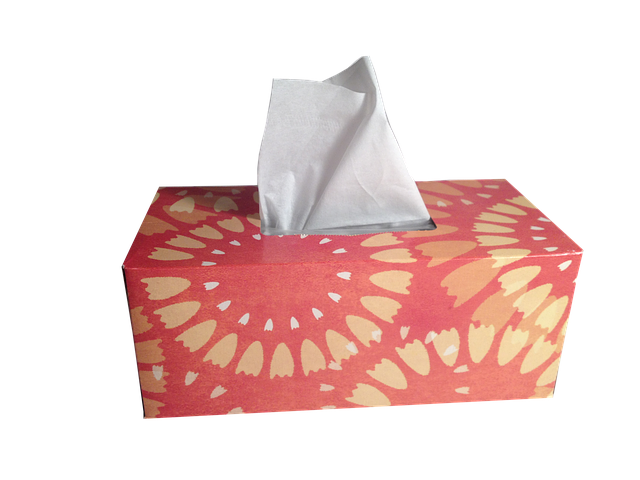 When you are focused on a child with a fever, cough, or vomiting, it can be easy to question getting them out of the sickbed to brush their teeth. However, keeping mouths clean and teeth healthy can be even more important during illness. Here are some useful tips for protecting your child’s oral health when they’re sick.
When you are focused on a child with a fever, cough, or vomiting, it can be easy to question getting them out of the sickbed to brush their teeth. However, keeping mouths clean and teeth healthy can be even more important during illness. Here are some useful tips for protecting your child’s oral health when they’re sick.
Brush and floss
Brushing and flossing helps prevent build-up of harmful germs and bacteria in your child’s mouth. This helps keep their immune system focused on fighting the cold or flu virus. If your child’s illness includes vomiting, their teeth are exposed to acids that can weaken teeth. Help them rinse thoroughly and brush their teeth to avoid damage.
Hydrate
When your child is sick, they need plenty of water to stay hydrated, soothe a sore throat, and keep sinuses moist. In addition, dry mouth can occur during illness and increase risk of tooth decay. Drinking water helps combat dry mouth and congestion.
Watch out for sugars
Cough drops and cough syrups can contain high amounts of sugar to improve the medicine flavor. However, this can leave sugary residue on the teeth. Look for sugar-free options when possible and rinse well after any medicine with sugar.
Disinfect dental appliances
If your child has a dental appliance, such as a retainer, athletic mouth guard, or night guard, be sure it is cleaned thoroughly between uses. Contact our office for information on the type of cleanser that is appropriate for your child’s device.
Follow-up
When your child is well again, replace their toothbrush. Even a clean toothbrush may retain some bacteria or germs following use. To help protect your child from reinfection, discard the used toothbrush in favor of a new one.
For more tips on keeping teeth healthy through an illness, contact our office.
Pediatric Dentist in Nashville | Teeth Stages
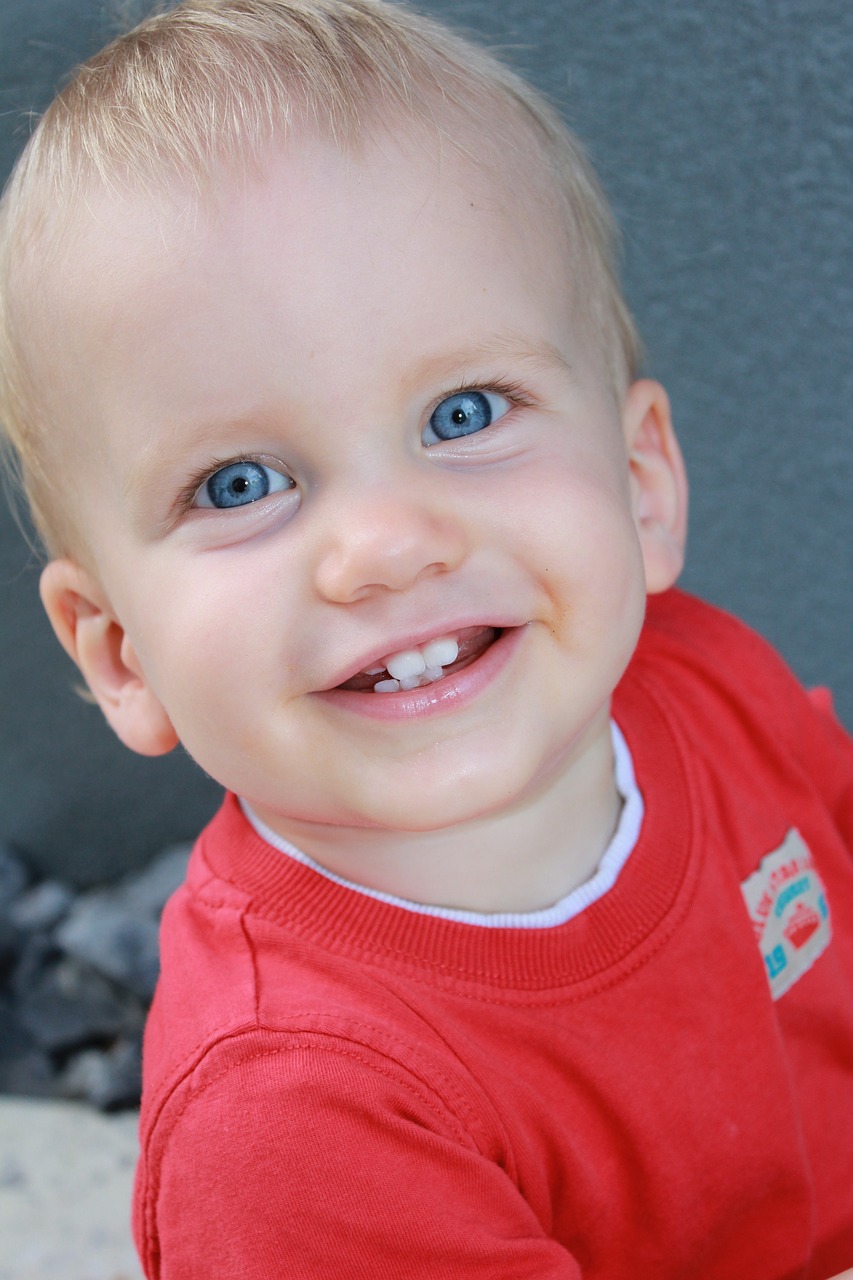 A child’s first tooth growing in can be a bittersweet moment for parents. It can be frustrating when babies become irritable. It can also be exciting because this marks another stage in a child’s life. Understanding the stages of oral development can help you promote optimal oral health for your child.
A child’s first tooth growing in can be a bittersweet moment for parents. It can be frustrating when babies become irritable. It can also be exciting because this marks another stage in a child’s life. Understanding the stages of oral development can help you promote optimal oral health for your child.
Birth to 3 Years Old
The primary (baby) teeth that will appear in the first 3 years of your child’s life aid in development. Primary teeth are key for chewing, speaking, and appearance. They also hold space in the jaws for upcoming adult teeth. Even though they fall out, baby teeth are extremely important.
3 to 6 Years Old
By the time your child is 3 years old, they will most likely have all 20 primary teeth. Your child should be brushing their teeth twice a day and flossing daily.
6 to 12 Years Old
Between the ages of 6 to 12 years old, your child will gradually lose all of their primary teeth and their first permanent (adult) teeth will move into place. Permanent teeth affect the position and health of the other adult teeth that will grow in later.
12 to 17 Years Old
After 12 years old, your child will likely have most of their adult teeth. Oral health becomes critical because these are their teeth for life. Avoid excessive sugar which can lead to tooth decay, wear mouth guards while playing sports, and visit us if your child appears to have crooked teeth.
17 to 21 Years Old
The last teeth to appear are wisdom teeth. Often times, we recommend that these teeth be removed to prevent overcrowding which can lead to many oral health problems. This tends to occur between the ages of 17 to 30.
Teeth are constantly changing throughout childhood. How you take care of your child’s teeth now, can impact their oral health in the future.
Contact our office to schedule your child’s first appointment today.
Pediatric Dentist in Nashville | Pacifiers and Teeth Development
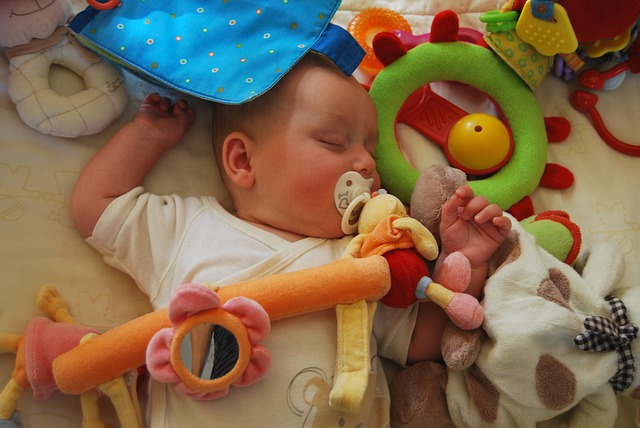 One of the best ways to calm fussy babies is by giving them a pacifier. However, as babies grow this can be a difficult habit to break. The use of pacifiers can cause improper mouth development which leads to abnormal tooth growth and additional complications later in life. Here’s what you need to know about the impact pacifiers have on your baby’s smile.
One of the best ways to calm fussy babies is by giving them a pacifier. However, as babies grow this can be a difficult habit to break. The use of pacifiers can cause improper mouth development which leads to abnormal tooth growth and additional complications later in life. Here’s what you need to know about the impact pacifiers have on your baby’s smile.
Negative Effects of Pacifiers
Physical development is crucial for children’s overall health in the first few years of their life. What you do now can affect them for their entire life. Pacifiers can influence the shape and alignment of your child’s teeth and jaw. It can move the front teeth forward and you may notice your child developing crooked teeth or bite problems. The front teeth may also not meet when their mouth is closed and there can be changes in the shape of the roof of their mouth.
Positive Effects of Pacifiers
While they may contribute to oral health complications, pacifiers do offer several benefits for parents and children. According to the American Academy of Pediatrics (AAP) babies up to one year of age who are offered a pacifier at night have a reduced risk of sudden infant death syndrome (SIDS).
What You Should Do
Since pacifiers can be beneficial for other health reasons, you should speak with us about how to wean your baby off of pacifiers. We also recommend that you visit our office for an examination as soon as your child’s first tooth develops.
Breaking the habit of pacifier use can be difficult, but there are various ways you can wean your child off a pacifier. By following our tips and recommendations, your child can experience the calming effect of pacifiers without developing pacifier teeth.
Contact our office and schedule your child’s next appointment today.
Are you Prepared for a Pediatric Dental Emergency?
At Adams & Seaton Pediatric Dentistry in Nashville, TN we sometimes see dental emergencies. Kids are kids, and because kids are active there will inevitably be bumps and bruises from time-to-time. Sometimes those bumps and bruises can be a broken tooth or biting through a lip. Other times it can be more serious.
A Pediatric Dental Emergency Defined
If we define “pediatric dental emergency” as anything involving the teeth and mouth, this could include any of the following:
- abscessed tooth
- broken tooth
- knocked-out tooth
- a bite through the lip
- a blow to the mouth that wounds the mouth or loosens teeth
- an object caught in the teeth
- broken jaw
Not all “dental emergencies” require a dentist, such as a broken jaw or an injury to the lip that requires stitches. You should see a medical doctor in the emergency room for these. But for anything directly associated with the health of a tooth, you should consult with a dentist.
First, Don’t Panic
Traumas to the mouth often bleed – A LOT! This might cause you to panic initially, but blood is not necessarily a reason to worry. Often the blood and pain from the trauma subside in 3 – 5 minutes. Most of the time, you simply need to give us a call to see what the next steps should be. Our staff is trained to ask you the right questions. So we can determine if you need to come in right away. However, in many cases, we need to wait for the mouth to calm down from the trauma before we can treat.
We Are Here for You
Rest assured that Dr. Adams and Dr. Seaton and their team will care for your child as if they are treating their own. This is just one reason that we are one of the most pediatric dentists in Nashville – and have been for over 42 years.
And don’t worry if your emergency happens after hours. We are always available by phone in the event of an emergency even after hours. After hours, the recorded message tells you the name and number of the doctor on call. You can call the doctor and find out exactly what you should do for your current emergency or if you need to come into the office immediately.
About Adams & Seaton Pediatric Dentistry
Adams & Seaton Pediatric Dentistry is widely recognized as one of the best pediatric dentists in Nashville, TN since 1977. We serve children like they were our own and provide a variety of pediatric dental services to kids in Nashville, Green Hills, West End, Belle Meade and more. Click here to meet our team.
7-Step Guide to Brushing Your Child’s Teeth
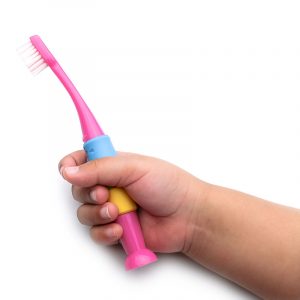 As one of the leading Pediatric Dentists Nashville has to offer we often get asked the question by parents, “when should I start brushing my child’s teeth?” In this blog post we answer that question and provide a simple 7-step guide to brushing your child’s teeth correctly from 18 months to 6 years of age.
As one of the leading Pediatric Dentists Nashville has to offer we often get asked the question by parents, “when should I start brushing my child’s teeth?” In this blog post we answer that question and provide a simple 7-step guide to brushing your child’s teeth correctly from 18 months to 6 years of age.
When to Start Brushing
You can start cleaning your baby’s teeth as soon as the teeth erupt. Begin by using a clean, soft cloth to wipe the teeth and gums. If the baby can tolerate it, use a small, soft toothbrush and water. If the brush is a “no-go,” try introducing it again at about 12 months. But don’t use toothpaste until about the 18thmonth. Clean baby’s teeth and gums after breakfast and before bed.
Brushing your Child’s Teeth Correctly (18 months to 6 years)
When your child is young, you will have to follow the steps below yourself. When your child is old enough to brush correctly, you should teach these steps to your child. To help your child brush for a sufficient length of time, use your child’s favorite songs to help time the brushing session. (Realize that you may still need to follow-up to be sure the brushing is thorough.)
- Squeeze a pea-sized amount of toothpaste onto a soft, children’s toothbrush. (Note: Fluoride is a good thing in the right amount at the right developmental stage, but not during infancy. Introduce fluoride when your child is old enough to spit out and not swallow toothpaste.)
- For a younger child, have the child sit in your lap, facing away from you, tilt the child’s head back against your body so you can see all the surfaces of the teeth. (For older children, stand behind the child and tilt the head back.)
- Move the brush in gentle circles to clean the outer sides of the teeth and gums. Make sure you hold the brush so that the bristles are angled towards the gum.
- Repeat the gentle, circular brushing on the inside of the teeth and gums.
- Brush back and forward on the chewing surfaces of the back teeth.
- When finished, encourage your child to spit out the toothpaste. Do not rinse with water because this may encourage the child to swallow the toothpaste.
- Replace the toothbrush when it shows signs of wear (about every 3 to 4 months). Frayed bristles do not clean the teeth and gums adequately.
Follow Up With Our Pediatric Dentists Dr. Adams and Dr. Seaton in Nashville, TN
To safeguard your children’s dental health, call us to schedule a preventive care appointment. If you have questions about your child’s dental care, please click this link to see our FAQ page or contact us at 615-297-7597 to schedule an appointment.
The Heart of Green Hills Pediatric Dentistry
Providing the best Green Hills pediatric dentistry available is at the heart of Adams & Seaton Pediatric Dentistry. You can’t walk into the offices of Adams & Seaton Pediatric Dentistry without knowing immediately that this is a place where everyone has a true heart for children.
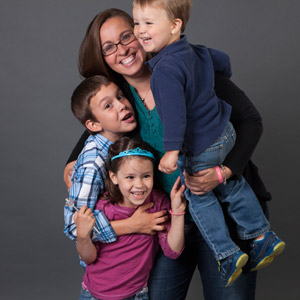
That heart started beating in 1977 when George Adams, Sr. began his practice in Nashville. And we’ve been blessed to provide pediatric dentistry to children and families in Green Hills and the surrounding communities for over 40 years.
Spreading the Word About Pediatric Dentistry in Green Hills
Dr. Adams and Dr. Seaton have an office that is a gentle, caring environment full of fun and laughter. Their focus is on having a meaningful impact in the life of every patient they see.
But this is not enough for Dr. Adams and Dr. Seaton. They have an ardent commitment to all the children of the Green Hills and surrounding communities, and they reach out to as many of them as they can. Through donations, sponsorships, and personal visits, we support many of the schools in the Green Hills and Belle Meade area, including:
- Oakhill Elementary
- Julia Green Elementary
- St. Matthew’s School
- St. Henry’s School
- The Covenant School
- St. George’s Kindergarten
- Calvary Young Children’s School
Reaching Beyond Green Hills Pediatric Dentistry
Caring for and educating the children who come to them as patients and the children that they support in Green Hills is still not enough for Dr. Adams and Dr. Seaton. Dr. Adams and Dr. Seaton both support the efforts of Interfaith Dental Clinic right here in Nashville. Dr. Adams is also passionate about serving the people of Haiti, where he leads yearly dental mission trips. Dr. Seaton travels annually to participate in international mission trips to Guatemala, Honduras, and Jamaica. Their hearts for children are truly overflowing.
Join Our Family
If you are searching for a pediatric dentist in Green Hills or Belle Meade, we would love to have you join our family. We specialize in oral sedation dentistry, preventive care and hospital dental care. For additional information or to schedule an appointment please call (615) 297-7597. We look forward to the opportunity to serve your children.
Foods for Healthy Teeth and Gums
It’s common to associate healthy teeth and gums with regular brushing, flossing, and using mouthwash, but diet plays a very important part in dental health, too. You probably already know that acidic and sugary foods and drinks are bad for teeth, but do you know which foods can really give your child’s oral health a big boost?
18 Great Dietary Suggestions
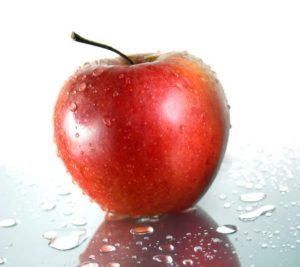 Although this is not an exhaustive list, it contains 18 foods and beverages that are proven winners in the oral health category:
Although this is not an exhaustive list, it contains 18 foods and beverages that are proven winners in the oral health category:
Fruit
- Apples – raw
Packed with key nutrients, vitamins, and antioxidants. Naturally abrasive, so they gently scrub and clean teeth surfaces.
- Kiwi
Has one of the highest concentrations of vitamin C.
- Oranges
The least acidic citrus. Famous for vitamin C which makes for stronger blood vessels, less inflammation, and healthier gums.
- Pears
Have a neutralizing effect on acids.
- Strawberries
Packed with Vitamin C, antioxidants, and malic acid, which acts as a teeth whitener.
Vegetables
- Carrots
Contain lots of the most important minerals and vitamins for your mouth. Like apples, are natural teeth scrubbers.
- Celery
The closest thing to nature’s floss.
- Leafy greens – spinach, broccoli, kale
Rich in calcium, folic acid and many vitamins and minerals that are superheroes for teeth and gums.
- Sweet potatoes
Contain vitamin A, which is essential for tooth enamel and gums.
Dairy
- Cheese – hard, aged cheeses are the best options
Rich in calcium, fights plaque, increases saliva production.
- Milk
Rich in calcium and other minerals, fights plaque and tooth decay.
- Yogurt
Contains calcium, of course, but also probiotics that protect against cavities, gum disease, and even bad breath.
Non-dairy Beverages
- Black and Green Tea – unsweetened
Contains polyphenols that reduce bacteria and toxic products of bacteria in the mouth. Usually rich in fluoride.
- Water
Keeps saliva production levels high which fights tooth decay. Also washes away bacteria.
Meats and Fish
- Fish – fatty fishes, wild salmon, tuna
Rich in minerals and Vitamin D
- Meat – beef, pork, fowl
All meats are packed with vitamins and minerals important to oral health, such as B12, iron, and zinc to name a few.
Snacks
- Nuts – especially almonds, Brazil nuts and cashews
High in antioxidants. Rich in calcium and phosphorus, the building blocks of enamel, which also help to fight bacteria and tooth decay.
- Sesame seeds
High in calcium and very efficient at scrubbing plaque off teeth while you chew them.
Don’t Forget the Basics
Remember to keep a balance – good food and good dental habits. Don’t forget what your child’s dentist recommends for brushing and flossing. At Adams & Seaton Pediatric Dentistry, we recommend a preventive care office visit every 6 months. Learn More.
More About Adams & Seaton Pediatric Dentistry
If you are searching for the top kids dentist Nashville has to offer you’ll find a pediatric dental practice in Adams & Seaton Pediatric Dentistry that provides the highest quality dental care in a relaxed, non-intimidating environment. For additional information or to schedule an appointment please call (615) 297-7597. We look forward to the opportunity to serve your children.
Sport Snacks That Make for Unhappy Teeth
Did you know that the US Youth Soccer organization has over three million players between the ages of five and nineteen registered? And that’s just the kids registered by US Youth Soccer. You can see the evidence of the game’s popularity every week during soccer season. Youth teams are playing on indoor and outdoor fields across our cities and counties. Week after week, at the end of every game, the designated parent of the week passes out the drinks and treats for a game well played.
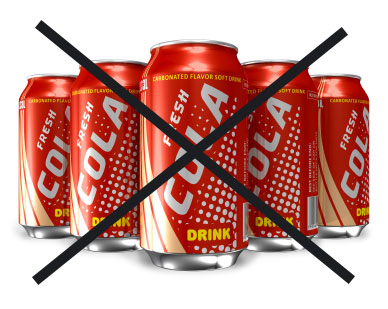
Drinks and “Healthy” Treats to Avoid
The list of drinks and treats below, usually include some of the worst cavity causing culprits, including:
- Citrus fruit and citrus juice, which contain high levels of citric acid that demineralize the protective enamel coating of teeth
- Carbonated drinks and sports drinks, which are high in sugar and citric acid
- Candy of all kinds, but also so-called “health food bars,” which many times are as high in sugar as a candy bar. Sticky and gooey candies are particularly bad for teeth because they stay on the teeth longer, causing sugar exposure for a longer period of time. Plaque bacteria in the mouth use that sugar to produce acids that attack the enamel.
- Dried fruits, such as raisins, dried cranberries, apricots, and figs. These are not only full of sugar, but stick to the teeth just like sticky and gooey candies. In fact, these fruits are full of non-soluble cellulose fiber. This fiber helps bind and trap sugars on and around the tooth so they are actually worse than candy!
- Starchy foods such as potato chips and tortilla chips, which get caught between teeth and ultimately turn to sugar. Starches can begin converting to sugar in the mouth almost immediately, not only by the bacteria in the mouth, but also by the enzymes in saliva.
As one of the leading pediatric dentists Nashville has to offer, we know that preventive care is one of the key factors to dental health for children. So, the next time it’s your turn to give out the treats after a game, don’t promote dental decay! Instead of sports drinks, give out bottled water. Instead of bags of chips, give out apples. Encourage other parents to do the same!
Take a step farther to safeguard your children’s dental health by scheduling preventive care appointments. Learn more.
How to Choose a Nashville Pediatric Dentist?
So you Googled Nashville Pediatric Dentist. Now what? How do you go about choosing the right one? We suggest that you call your top picks and ask these four questions:
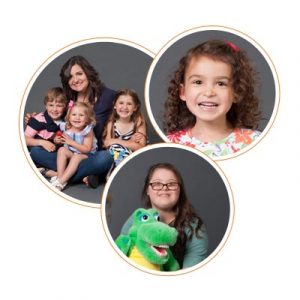
- How much pediatric experience does your dentist and the staff have?
- Do you have a standard treatment plan?
- What technology or techniques do you use to make procedures more comfortable or less frightening for children?
- Does the dentist talk to the parent at each visit?
Here’s how we would answer these questions.
A Nashville Pediatric Dentist for More Than 40 Years
Adams Pediatric Dentistry has been serving as a Nashville pediatric dentist office for over 40 years, since Dr. Adams’ father started the practice in 1977. Experience of the current staff (Meet Our Team) ranges from 2 years to 25 years. We have a good balance when it comes to length of experience and experience with newer technology.
Standard Treatment Plan and Technology
There is not a one-size-fits-all solution. We tend to be conservative and flexible with how parents want to approach a situation. We explain our plan and then adjust it to fit what parents are comfortable with.
Additionally, we use technology and techniques that make treatment easier and less frightening for the child. For a child’s comfort, we use a relaxed, “open bay” hygiene setup so no patient is alone in a room. Our digital x-ray machine is a good example of technology that is more comfortable for a child. It does not require x-ray film to be placed in the child’s mouth; therefore, there is no gag reflex or discomfort. It’s a quick and easy process that yields a high-quality diagnosis.
Parent and Dentist Interaction
Not every Nashville pediatric dentist feels the need to speak with a parent at every visit. But at Adams Pediatric Dentistry, we not only talk with the parent every time, we are very good at listening to your concerns and questions and addressing them.
Feel free to give us a call at 615-297-7597 for more information.


 Children are often active and adventurous, which can sometimes lead to accidents involving their teeth and mouth. Common dental emergencies for kids include:
Children are often active and adventurous, which can sometimes lead to accidents involving their teeth and mouth. Common dental emergencies for kids include: One very clear sign that your child may have a dental problem is shying away from or crying when offered a favorite food or drink. A damaged tooth can be sensitive to hot or cold foods.
One very clear sign that your child may have a dental problem is shying away from or crying when offered a favorite food or drink. A damaged tooth can be sensitive to hot or cold foods. As two of the top pediatric dentists in Nashville, Dr. Adams and Dr. Seaton frequently see the problem of teeth grinding in their young patients. Many of these children have no idea they are grinding their teeth, but, in fact, three out of ten kids grind or clinch their teeth. Regular trips to the dentist can identify this habit before it damages the teeth.
As two of the top pediatric dentists in Nashville, Dr. Adams and Dr. Seaton frequently see the problem of teeth grinding in their young patients. Many of these children have no idea they are grinding their teeth, but, in fact, three out of ten kids grind or clinch their teeth. Regular trips to the dentist can identify this habit before it damages the teeth.
 Most parents think their children need to have a mouth full of teeth before they take them to the dentist, but this is not true. The American Academy of Pediatric Dentistry recommends a child visit as soon as the first tooth appears or, at least, before his first birthday. We at Adams and Seaton Pediatric Dentistry are one of the endorse the benefits of early childhood dental visits.
Most parents think their children need to have a mouth full of teeth before they take them to the dentist, but this is not true. The American Academy of Pediatric Dentistry recommends a child visit as soon as the first tooth appears or, at least, before his first birthday. We at Adams and Seaton Pediatric Dentistry are one of the endorse the benefits of early childhood dental visits.
 Why Pediatric Dentists in Nashville Don’t Recommend Mouthwash for Children
Why Pediatric Dentists in Nashville Don’t Recommend Mouthwash for Children Additional training that pediatric dentists receive allows them to address special needs. So, pediatric dentists know how to ease anxiety in special needs children and make them comfortable. Many pediatric dentists use these methods to allay a child’s anxiety or discomfort:
Additional training that pediatric dentists receive allows them to address special needs. So, pediatric dentists know how to ease anxiety in special needs children and make them comfortable. Many pediatric dentists use these methods to allay a child’s anxiety or discomfort:
 You can help prevent your child from being afraid of the dentist by:
You can help prevent your child from being afraid of the dentist by:

 If you are wondering about the answer to this question, we have the answer for you in this blog. The American Dental Association (ADA) recommends getting a teeth cleaning and checkup every six months. This goes for children as well as adults. You should begin taking your child to the dentist after the first tooth erupts or at least by the first birthday.
If you are wondering about the answer to this question, we have the answer for you in this blog. The American Dental Association (ADA) recommends getting a teeth cleaning and checkup every six months. This goes for children as well as adults. You should begin taking your child to the dentist after the first tooth erupts or at least by the first birthday. As a parent, perhaps you are wondering, “Should I take my child to my dentist or to a pediatric dentist?” You might be thinking of the convenience of the whole family going to the same dentist. But the services of a pediatric dentist for your child can result in benefits that far outweigh convenience.
As a parent, perhaps you are wondering, “Should I take my child to my dentist or to a pediatric dentist?” You might be thinking of the convenience of the whole family going to the same dentist. But the services of a pediatric dentist for your child can result in benefits that far outweigh convenience.
 Here are three tips for Christmas:
Here are three tips for Christmas: What to Expect at an Appointment
What to Expect at an Appointment






 To grow big and strong, kids need to eat plenty of great food. It also helps if they enjoy the food they’re eating. Sometimes however, the foods that your child loves most can be detrimental to their oral health.
To grow big and strong, kids need to eat plenty of great food. It also helps if they enjoy the food they’re eating. Sometimes however, the foods that your child loves most can be detrimental to their oral health. You may not have known that
You may not have known that  At
At 


 Making sure your child’s mouth develops properly is important. Part of a growing mouth will mean your child’s baby teeth will come out. For many kids, baby teeth loosen and fall out on their own, but every child is different. When you bring your child in for an orthodontic evaluation, we take into consideration your child’s baby teeth. Here are some things to remember about your child’s teeth.
Making sure your child’s mouth develops properly is important. Part of a growing mouth will mean your child’s baby teeth will come out. For many kids, baby teeth loosen and fall out on their own, but every child is different. When you bring your child in for an orthodontic evaluation, we take into consideration your child’s baby teeth. Here are some things to remember about your child’s teeth. When you are focused on a child with a fever, cough, or vomiting, it can be easy to question getting them out of the sickbed to brush their teeth. However, keeping mouths clean and teeth healthy can be even more important during illness. Here are some useful tips for protecting your child’s oral health when they’re sick.
When you are focused on a child with a fever, cough, or vomiting, it can be easy to question getting them out of the sickbed to brush their teeth. However, keeping mouths clean and teeth healthy can be even more important during illness. Here are some useful tips for protecting your child’s oral health when they’re sick. A child’s first tooth growing in can be a bittersweet moment for parents. It can be frustrating when babies become irritable. It can also be exciting because this marks another stage in a child’s life. Understanding the stages of oral development can help you promote optimal oral health for your child.
A child’s first tooth growing in can be a bittersweet moment for parents. It can be frustrating when babies become irritable. It can also be exciting because this marks another stage in a child’s life. Understanding the stages of oral development can help you promote optimal oral health for your child. One of the best ways to calm fussy babies is by giving them a pacifier. However, as babies grow this can be a difficult habit to break. The use of pacifiers can cause improper mouth development which leads to abnormal tooth growth and additional complications later in life. Here’s what you need to know about the impact pacifiers have on your baby’s smile.
One of the best ways to calm fussy babies is by giving them a pacifier. However, as babies grow this can be a difficult habit to break. The use of pacifiers can cause improper mouth development which leads to abnormal tooth growth and additional complications later in life. Here’s what you need to know about the impact pacifiers have on your baby’s smile. As one of the leading
As one of the leading 
 Although this is not an exhaustive list, it contains 18 foods and beverages that are proven winners in the oral health category:
Although this is not an exhaustive list, it contains 18 foods and beverages that are proven winners in the oral health category:
